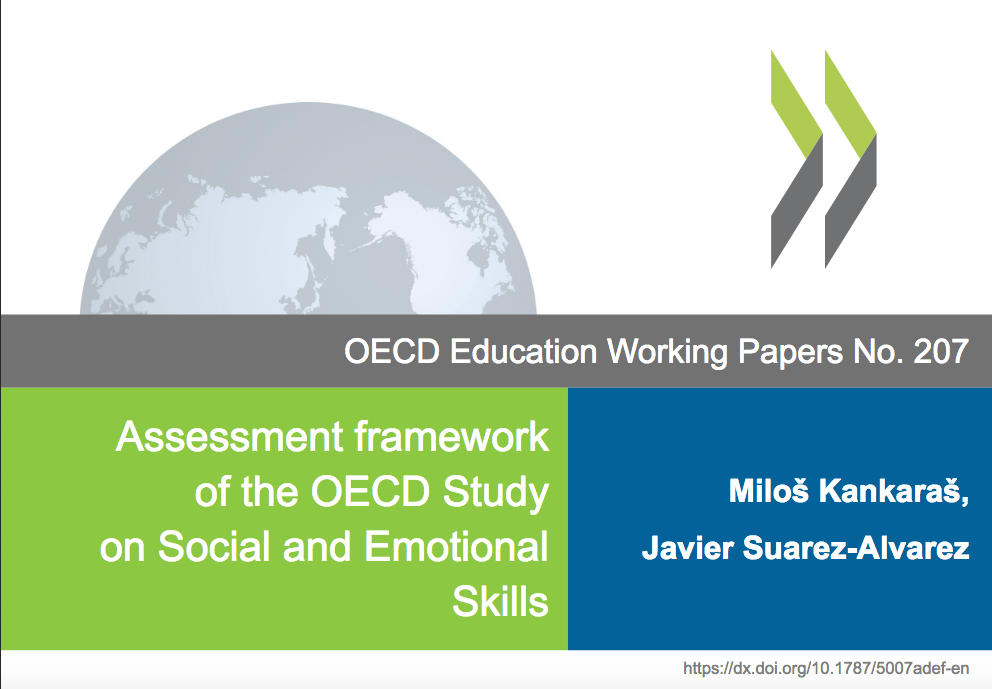
Social and emotional skills are not only important for individuals but also shape the larger communities and societies we live in
by Pisana Ferrari – cApStAn Ambassador to the Global Village
The assessment framework of the OECD Study on Social and Emotional Skills (SEL) has just been published. (1) Together with the previously published conceptual framework, the Study now has complete framework documentation explaining all of its substantive and methodological aspects, writes OECD Project Manager for the SEL Study Miloš Kankaraš. “Long time in the making but worth the effort”. (2) The framework, developed by a team of experts in various domains, incorporates evidence from psychology, education, organisational sciences, sociology, economy, and public policy. Why are social and emotional skills important? Previous OECD studies, such as the Programme for International Student Assessment (PISA), and the Programme for the International Assessment of Adult Competencies (PIAAC), revealed that social and emotional skills are related to important educational, work and life outcomes. But, as the assessment framework points out, they are not only important for individuals, they also shape the larger communities and societies we live in. “Resourceful, respectful and tolerant citizens who work well with others, and take personal and collective responsibility, are increasingly becoming the foundation of a society working towards the common good”. Social and emotional skills are malleable, reads the report, and children continuously develop these skills through interactions with family, friends and teachers, at home and at school, and later in the community and workplace. Although social and emotional skills can be developed at a later age, early and continuous development achieves the best results. The Study aims to provide policy-makers and educators with relevant information about the conditions and practices that foster or hinder the development of social and emotional skills in schools and other settings. Read more about the SEL Study on the OECD website (3) and our blog. (4)
At cApStAn we are proud to have been charged with the verification of the SEL study materials, first together with the Ohio State University, then with the Australian Council for Educational Research (ACER), as well as for the linguistic quality assurance in a number of other large-scale OECD projects: PISA (since its inception in 2000), PISA for Development, PIAAC (since 2010), and TALIS (since 2008), to name but a few. “The cApStAn team is extremely happy to have been a part of this project (SEL) which assisted countries to focus on emotional skills that are critical for individuals to develop fulfilling lives”, says cApStAn project manager Emel Ince.
Footnotes
4) “Expanding the traditional focus on cognitive skills to embrace social and emotional ones”: https://bit.ly/2qjxTD2
Photo credit: Cover of SEL Study assessment framework